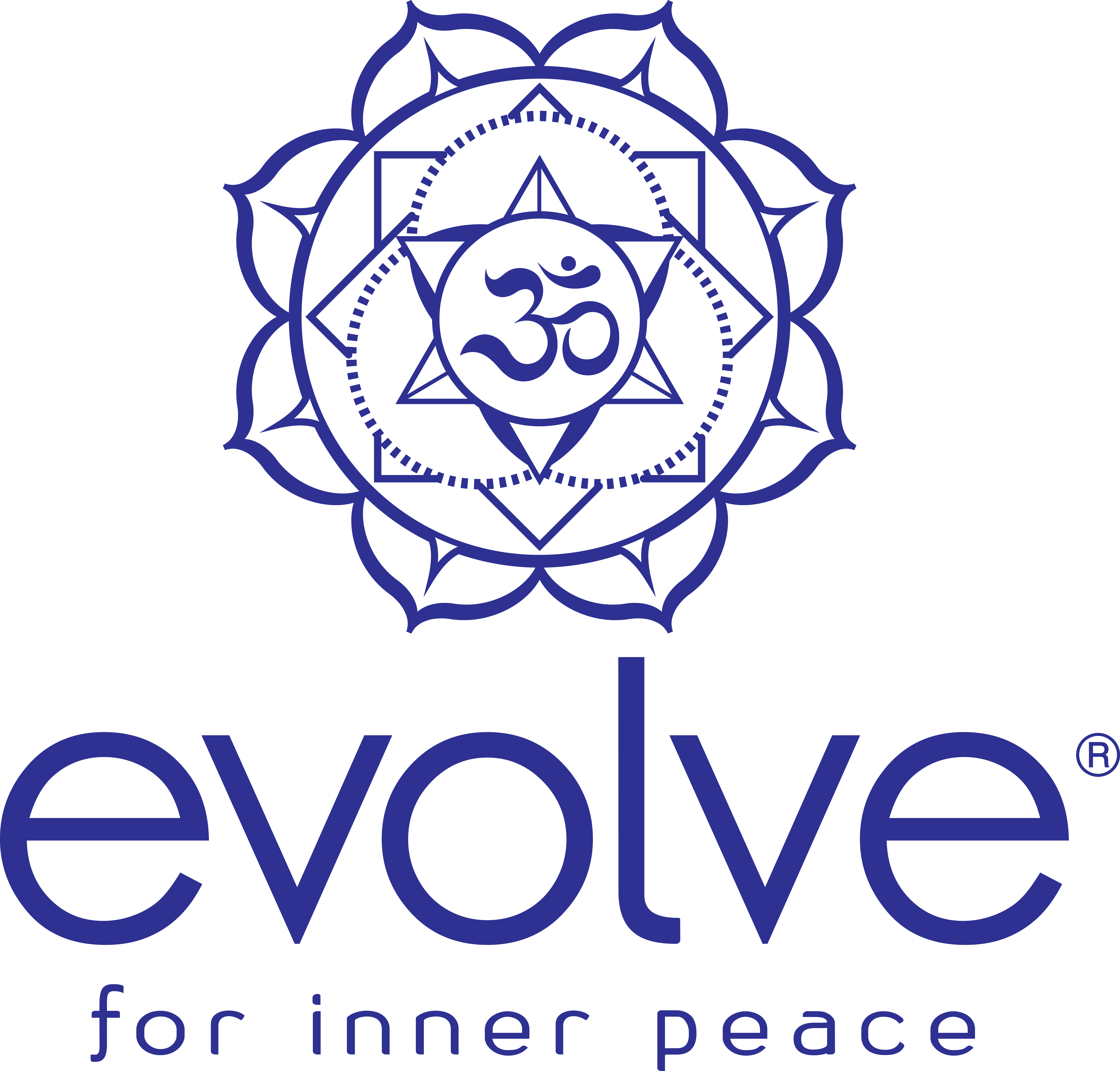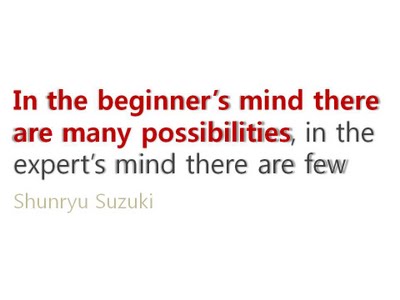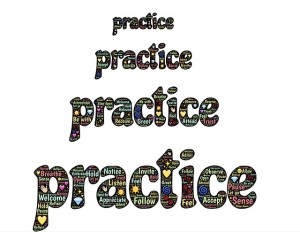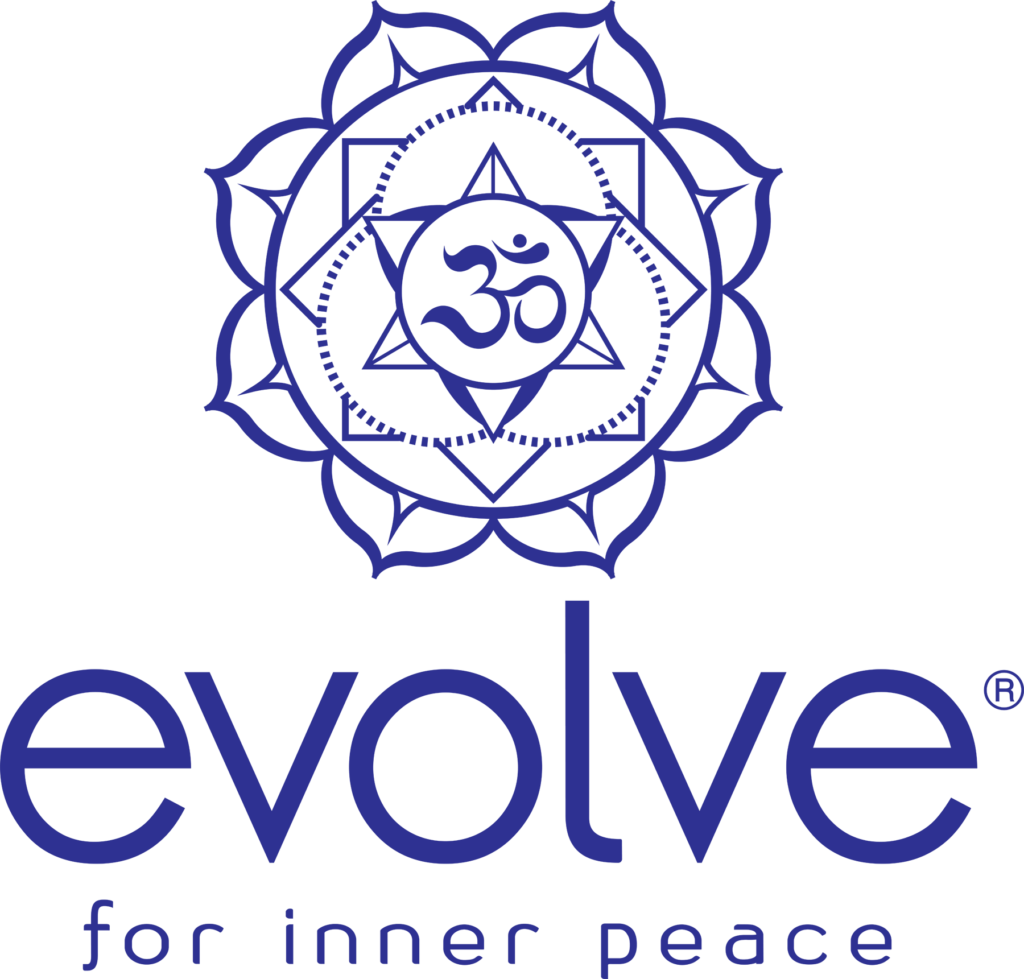“Beginners mind” is a term used to describe the flexibility of an advanced meditator’s mental state, constantly open to freshness and the newness of the truth as it appears in this moment. Perhaps Socrates is best known in the west for this because he maintained:
“As for me, all I know is that I know nothing.”
— Socrates
Personally, I find that this is a great way to approach meditation. I sit each day for 10-30 minutes in the morning with no real expectations about what I am supposed to be getting out of it, or what is supposed to be happening.
It’s true that I am aware of several different schools of thought regarding meditation, like various visualization methods, breathing strategies, concentration techniques, relaxation techniques and self inquiry or whatever else, but when I sit down to meditate, I don’t think about them.
What The Meditative Mind is not

We are used to our minds being engaged with something all the time. Pick up the kids, get the shopping done before the traffic picks up, make food,
do taxes, pay bills and when there is nothing pressing down on us. . . watch TV, check facebook, snap a selfie for Instagram, read an article,
read a book? maybe?
Awareness is never tired. The constant mental chatter can make you tired, but your thoughts can continue to bubble up driving you from one distraction to the next without ever tiring. This relentless mechanism can send you stumbling around the world ad infinitum, forever and ever amen. . . Unless you decide otherwise.
Meditation is one way to decide otherwise, and it has become very popular in the modern west, even sparking a resurgence of traditional forms of Christian Mysticism with contemplative practices like centering prayer and lectio divina, leading to mystical states like Unio Mystica.
Many people are meditating these days and that is a great thing, but if you ‘meditate’ at random stoplights and while you are waiting for your coffee at Starbucks, and you don’t have a more substantial daily practice, you are probably not getting the full benefit of meditation in much the same way that walking to the refrigerator and back to my computer doesn’t really grant me the full benefit of exercising.
Meditation starts as a practice
It continues as a practice as well, but if you want to develop a new habit you have to do something every day for 100 days. By the time you get to 100 days, your new habit just feels normal. This is true with our bad habits as well as our good habits which means that consistency and determination give us great power over our lives.
Sit for 10 minutes each morning for 100 days and you will absolutely change your life. Set an alarm so you don’t get distracted trying to figure out how long you’ve been sitting for and just sit. While you are cultivating this habit, don’t do anything. Don’t try new techniques or blaze new trails, don’t even think if you can help it, and certainly don’t try to get good at meditating.
If you need something to do because your gears just wont stop turning, then breathe. Breathe on purpose. If you need to be accomplishing something or getting better at something, then breathe. Become an accomplished breather.
Also, if breathing gets too boring, just stop breathing until it seems like a pretty cool thing again, and then you are ready to breathe some more.
Eventually the longest 10 minutes in all of human history will be over and the alarm will sound. As this becomes more and more of a habit, 10 minutes will fly past and you may even want to add some time to your alarm to get a deeper stretch, as they say in Yoga.
In the beginning, (and it’s always the beginning) your mind will try to figure out meditation. Every time you sit you will take a few deep breaths and then start gathering up all of the data you have about meditation and what you are supposed to do. Next you will probably start thinking about the right things to think about or how not to think at all. When you realize that you have gotten lost in a daydream you will take another deep breath and get really serious about solving this meditation thing.
That’s okay. As your practice deepens and your sense of identity slowly separates from your psychology, you will begin to watch this happening in your mind and laugh. It’s like watching a dog chase it’s own tail, and when you laugh at the silliness of the mind it generally gets quiet really quick. Suddenly the dog stops chasing it’s tail and hides behind the couch.
Now you are ready to meditate.




